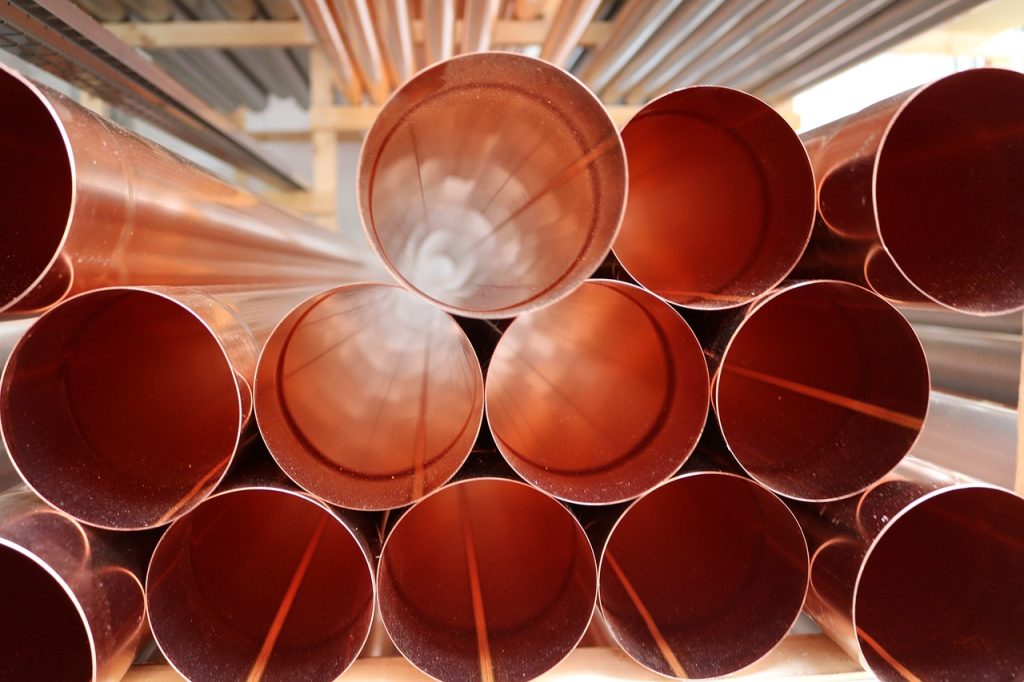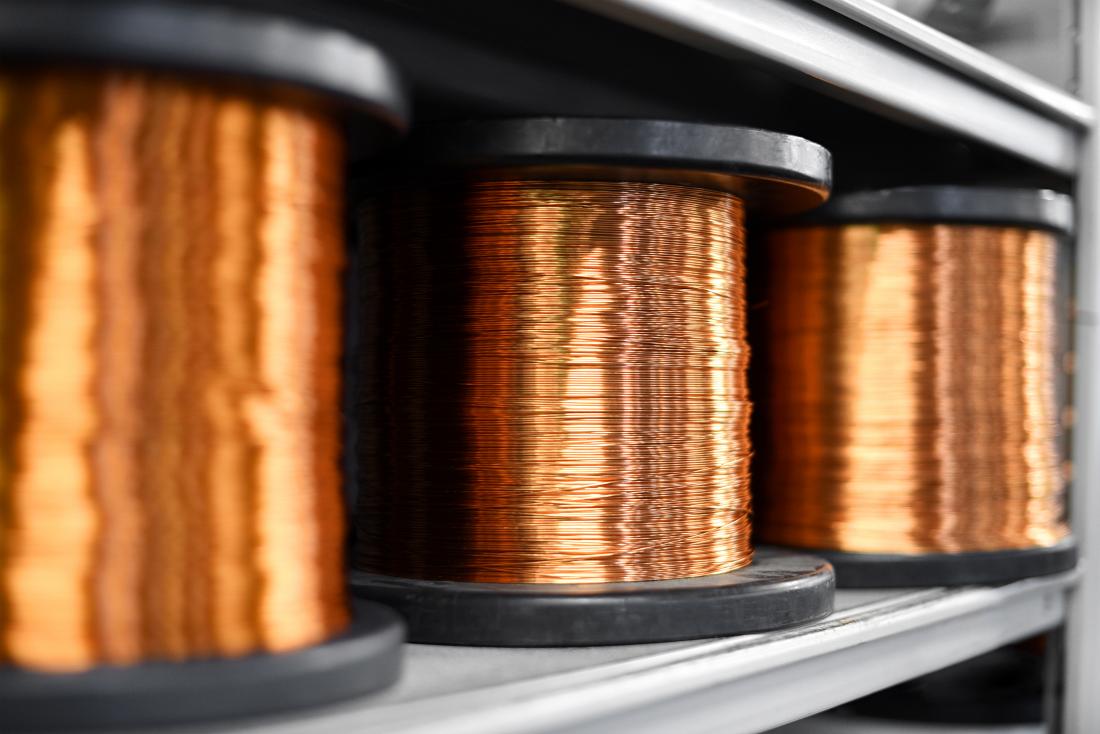Leading Trends in Home Design Featuring Elegant and Useful Copper Products
Leading Trends in Home Design Featuring Elegant and Useful Copper Products
Blog Article
Checking Out the Diverse Applications of Copper Products in Modern Industries
Copper items have actually developed themselves as important elements throughout a myriad of modern sectors, mostly as a result of their remarkable conductivity, malleability, and resistance to deterioration. From boosting the performance of electric systems to playing an important role in renewable resource innovations, the flexibility of copper appears. Additionally, its recyclability positions it as a lasting option in manufacturing and electronics. As markets significantly prioritize technology and sustainability, the varied applications of copper require a closer assessment, specifically concerning their possible effect on future environmental methods and technical innovations.
Electrical Applications of Copper
Copper is an essential material in the electric market, accounting for approximately 60% of the overall need for non-ferrous steels internationally - Copper Products. Its remarkable electrical conductivity, which is virtually twice that of aluminum, makes it the recommended option for a wide variety of electric applications. From wiring systems in residential and industrial buildings to high-voltage power transmission lines, copper ensures effectiveness and reliability in power shipment
Along with wiring, copper is essential to the manufacturing of electric parts such as transformers, motors, and generators. These parts utilize copper's thermal conductivity and pliability, essential for warm dissipation and efficient performance. Copper's resistance to deterioration enhances the life expectancy and longevity of electrical systems, making it a cost-effective option in the lengthy term.
The development of renewable resource resources, such as solar and wind power, has additionally increased the need for copper in electrical applications. As sectors change towards lasting power options, copper's duty becomes much more critical. On the whole, the adaptability and efficiency qualities of copper strengthen its status as a foundation product within the electric sector, driving innovation and efficiency across various applications.
Plumbing and Piping Solutions
In contemporary pipes systems, the option of materials dramatically affects both performance and long life. Copper has actually emerged as a favored option as a result of its special residential or commercial properties, including deterioration resistance and antimicrobial features. These characteristics make sure that copper piping stays resilient and safe for carrying potable water, a crucial factor to consider in domestic and business applications.
One of the key benefits of copper in plumbing is its capacity to endure heats and stress, making it suitable for a selection of applications, from warm water systems to home heating and cooling networks. Additionally, copper's adaptability permits simpler setup in complex piping designs, reducing the risk of leaks and failings.
An additional noteworthy advantage is copper's long life-span, commonly exceeding 50 years with appropriate maintenance. This long life not only lessens substitute expenses however additionally contributes to sustainable techniques by decreasing waste. Furthermore, copper's recyclability lines up with modern-day environmental criteria, advertising a round economy within the plumbing sector.
Copper in Renewable Resource
The flexibility of copper prolongs beyond plumbing applications, playing an essential role in the sustainable energy industry. In solar panels, copper is utilized in photovoltaic cells and circuitry, helping with efficient power conversion and transmission.

Additionally, as the global demand for electric automobiles (EVs) rises, copper's role in battery systems and charging facilities ends up being much more substantial. The material's capacity to perform electricity efficiently is essential to the efficiency check that of EV batteries, improving range and charging speed.
Copper's Role in Electronics
Electronic devices manufacturing counts greatly on copper's remarkable homes, specifically its high electrical conductivity and thermal efficiency. These qualities make copper a perfect choice for a variety of electronic parts, consisting of ports, circuit card, and electrical wiring. The steel's capacity to effectively transmit electric signals makes certain marginal power loss, which is critical in high-performance digital devices.
Moreover, copper's thermal conductivity plays a significant function in heat dissipation, shielding delicate components from overheating. This is specifically important in contemporary electronics, where portable styles lead to increased heat generation. Copper is additionally preferred for its malleability and ductility, enabling it to be easily formed right into complex designs that fulfill the demands of innovative digital applications.
With the increase of customer electronics, telecoms, and electric vehicles, the demand for copper in the electronic devices sector proceeds to grow. As innovations in technology advance, copper remains important to achieving higher efficiency and integrity in electronic items. Its recyclability better improves its allure, as producers seek lasting remedies without compromising high quality. Thus, copper remains a foundation product in the ever-expanding area of electronics.
Cutting-edge Makes Use Of in Manufacturing

One remarkable application is in additive production, where copper-based products are utilized in 3D printing procedures. This enables the production of light-weight components and intricate geometries, particularly in the aerospace and vehicle fields. Additionally, copper's thermal conductivity makes it a perfect choice for warm exchangers, boosting efficiency in industrial cooling systems.
In addition, the surge of clever manufacturing has seen the consolidation of copper in IoT tools, where its conductive capabilities sustain innovative noticing modern technologies. In the world of renewable power, copper is essential in the manufacturing of photovoltaic panels and wind generators, promoting more effective power conversion and circulation.
As industries strive for sustainability and development, copper's flexibility and performance proceed to position it as an important product, driving innovations in production and adding to the development of smarter, extra reliable items.
Final Thought
In recap, copper products show remarkable versatility throughout numerous modern-day markets. Copper Products. Their exceptional conductivity boosts electrical applications, while deterioration resistance makes certain integrity in plumbing. The essential role of copper in eco-friendly energy and its vital function in electronic devices highlight its significance in advancing lasting methods. Additionally, cutting-edge uses in manufacturing highlight copper's adaptability and sustaining relevance. Collectively, these applications highlight copper's essential contribution to technical progression and industrial performance in modern society.
From improving the performance of electrical systems to playing an important duty look at this website in renewable power modern technologies, the flexibility of copper is noticeable. As sectors significantly prioritize development and sustainability, the varied applications of copper warrant a closer assessment, specifically concerning their possible impact on future technological innovations and environmental practices.
The growth of sustainable power resources, such as solar and wind power, has better increased the demand for copper in electrical applications. Generally, the convenience and efficiency attributes of copper strengthen its standing as a keystone product within the electric sector, driving advancement and effectiveness across different applications.
The flexibility of copper prolongs beyond plumbing applications, playing an important function in the renewable energy sector.
Report this page